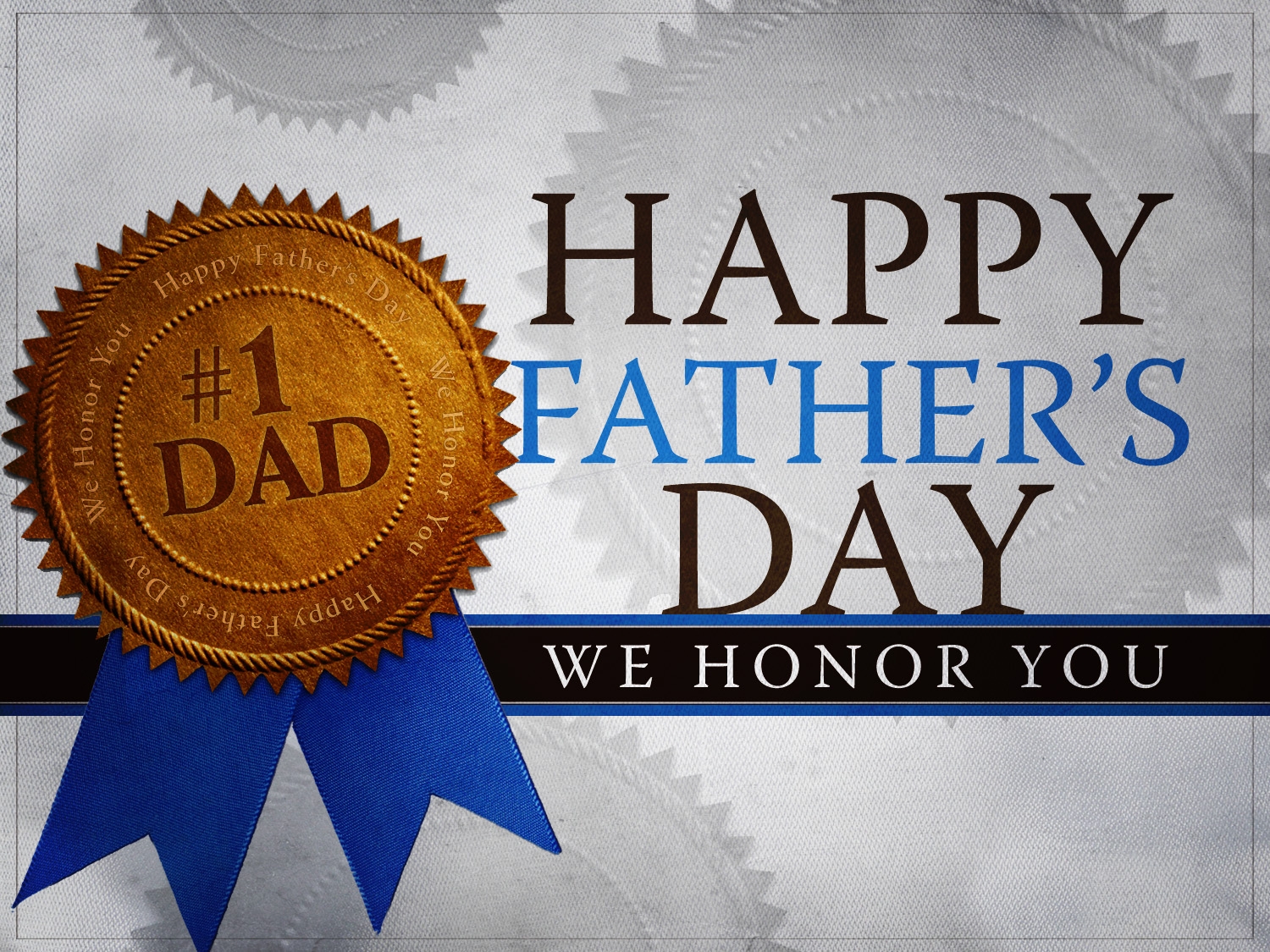Sunday is Father’s Day, the annual holiday where people all over the world (depending on the timezone) celebrate the men who made them.
Origin
Father’s Day officially began in 1910 in Spokane, Washington, where 27-year-old Sonora Dodd proposed it as a way to honor the man who raised her when her mom died in childbirth. Dodd was at a church service thinking about how grateful she was for her father when she had the idea for Father’s Day, which would mirror Mother’s Day but be celebrated in June, her dad’s birthday month.
The movement grew for years but didn’t gain national-event status until 1924 under former President Calvin Coolidge.

He said it would “establish more intimate relations between fathers and their children” and “impress upon fathers the full measure of their obligations,” according to the Library of Congress Wise Guide.
Controversy and Commercialism
The campaign to celebrate the nation’s fathers did not meet with the same enthusiasm–perhaps because, as one florist explained, “fathers haven’t the same sentimental appeal that mothers have.”
Some men, however, continued to disdain the day. A historian even writes, they
“Scoffed at the holiday’s sentimental attempts to domesticate manliness with flowers and gift-giving, or they derided the proliferation of such holidays as a commercial gimmick to sell more products–often paid for by the father himself.”
Here are the 12 Interesting Facts About Fathers
1. Dads, Too, Feel Guilty When They Leave Their Kids
If you think new moms are the only ones who feel guilty leaving their kids for even a short time, you’d be wrong. In a 2014 study of working mothers and fathers in focus groups by researchers at Kansas State University, it was found that men have to deal with their feelings when it comes to balancing family and fitness.
2. Dads Who Do More Chores Have Daughters With High Aspirations
In a 2014 study published in Psychological Science, it was found that parents’ domestic actions spoke louder than words. As in, even though a father preached all things feminism, if he left all the household duties to his wide, as “traditional” families tend to do, daughters will remember that and tend to envision themselves in traditionally female-dominant jobs.
Researchers looked at 326 children aged 7 to 13-years-old and at least one of their involved parents. It was found that fathers who were found to help with household chores had daughters who aspired for less traditional and higher paying careers. So do as John Mayer says: Fathers, be good to your daughters, and wash a dish or two.
3. We’re More Like Our Dads
A study done at the University of North Carolina found that in terms of genetic makeup, mammals are more like their fathers than their mothers. Even though we get the same amount of genetic mutations from our parents, we actually use more of the DNA we get from our dads. Knowing this information can help in the study of diseases. For example, the severity of a disease can be different if passed down from the mother or the father.
4. Fathers Who Actively Raise Their Children Make Smarter And Better Behaved Children
In a study published in the Canadian Journal of Behavioural Science, fathers positively influence the development of their children though hands-on parenting. Having a father present in a child’s life was found to have a positive influence on a child’s problem-solving abilities and a decrease in emotional problems such as sadness, social withdrawal, and anxiety.
Furthermore, an absentee dad was actually found to be worse for girls.

It was found that middle school girls with absent fathers experienced higher levels of emotional problems at school than other girls whose fathers were present in their lives.
5. What To Expect When You’re Expecting: Hormone Changes! For Both Moms And Dads
Obviously women go through a lot of hormone changes when they’re expecting, but in a study of 29 first-time parents done by researchers at the University of Michigan found that expectant fathers showed drops in testosterone and estradiol, which is a form of estrogen. The hormone changes occur in the early stages of pregnancy.
Researchers believe the changes occur due to a process happening within a man by just thinking of becoming a father. The study further found that men with larger declines in testosterone reported to being more engaged with their babies and even more supportive of their spouses.
6. Dads Need To Work On Their Fair Share Of Housework
In sticking to stereotypes, an Ohio State study found that pre-baby, working men and women shared the housework equally, but once the first child pops out, fathers tend to take a step back on chore duties. According to the study of 182 working couples who became first-time parents, the women spent an hour more at home each day than their husbands did. During the first weeks of parenthood, men actually cut back on their household duties by five hours per week.
7. Dads Need To Seriously Work On Their Baby Talk
Mothers are known for having soothing voices that can immediately put their child at ease. Scientists have even declared that mothers have mastered the art of “motherese,” or that tweak in pitch and pace that a mother uses when she talks to her young child. Fathers, on the other hand, have a lot of work to do do in that area. A recent study done by researchers at Washington State University looked at 11 preschoolers around 30-months-old and recorded over 150 hours of audio to find their results.
The study found that dads’ voices tend to stay steady when they’re talking to their children, and they pretty much talk to their kids like they talk to adults. But as speech scientist and the study’s coauthor Mark VanDam pointed out, that’s not necessarily a bad thing. In fact, in doing so, dads are actually giving their young kids a sort of “conversational bridge” to the outside world.
8. One Way To Show You’re A Good Father? Sing!
Researchers from the Freie Universitat in Berlin found that male nightingales prove their family values through song. It was found that the better the singing, the more supportive and protective the male would be towards their family.
9. Dads Who Spend More Time With Their Kids Are Happier Overall
In a study published in the Academy of Management Perspectives, researchers took responses from 31 fathers with young children to answer a series of questions about their thoughts on career and fatherhood. It was found that working dads who spent more time with their kids were more satisfied with their jobs and experienced less conflicts in their home, finding that perfect work-life balance.
10. For Some Men, Starting A Family Can Increase A Man’s Salary, Productivity Level, And Loyalty
A 2008 study conducted at the University of New Hampshire found that for married white and Latino men, the birth of a child brought an increase in annual earnings and time spent at work. It was even found that they earned more if their wives opted for the more traditional route and worked less.
11. Dads Who Play With Their Children Help Them Develop Better
In research done by Kathryn Kerns, a professor of psychological sciences at Kent State University in Ohio, she found that a child’s ability to form close, trusting bonds with their parents early on in life could predict the quality of a child’s social future when it came to friends and romance.
It was found that fathers who play with their children in a goofy and teasing way helped strengthen their bond with their child, which in turn, helped the child develop. It was also found that little gestures here and there, such as a father leaning down to nuzzle his baby’s neck with his chin, were found to be signs of encouragement for a frustrated child.
12. The Struggle Is Real For New Dads, Too
A study done by a UK charity for parents, NCT, found that a third of dads struggle with the mental pressures of being a new father, leading researchers to recognize that postnatal depression and perinatal mental health issues can happen to not only women but men as well. It was even found that men who support women with postpartum depression are likely to experience it themselves.




















Leave A Comment
You must be logged in to post a comment.